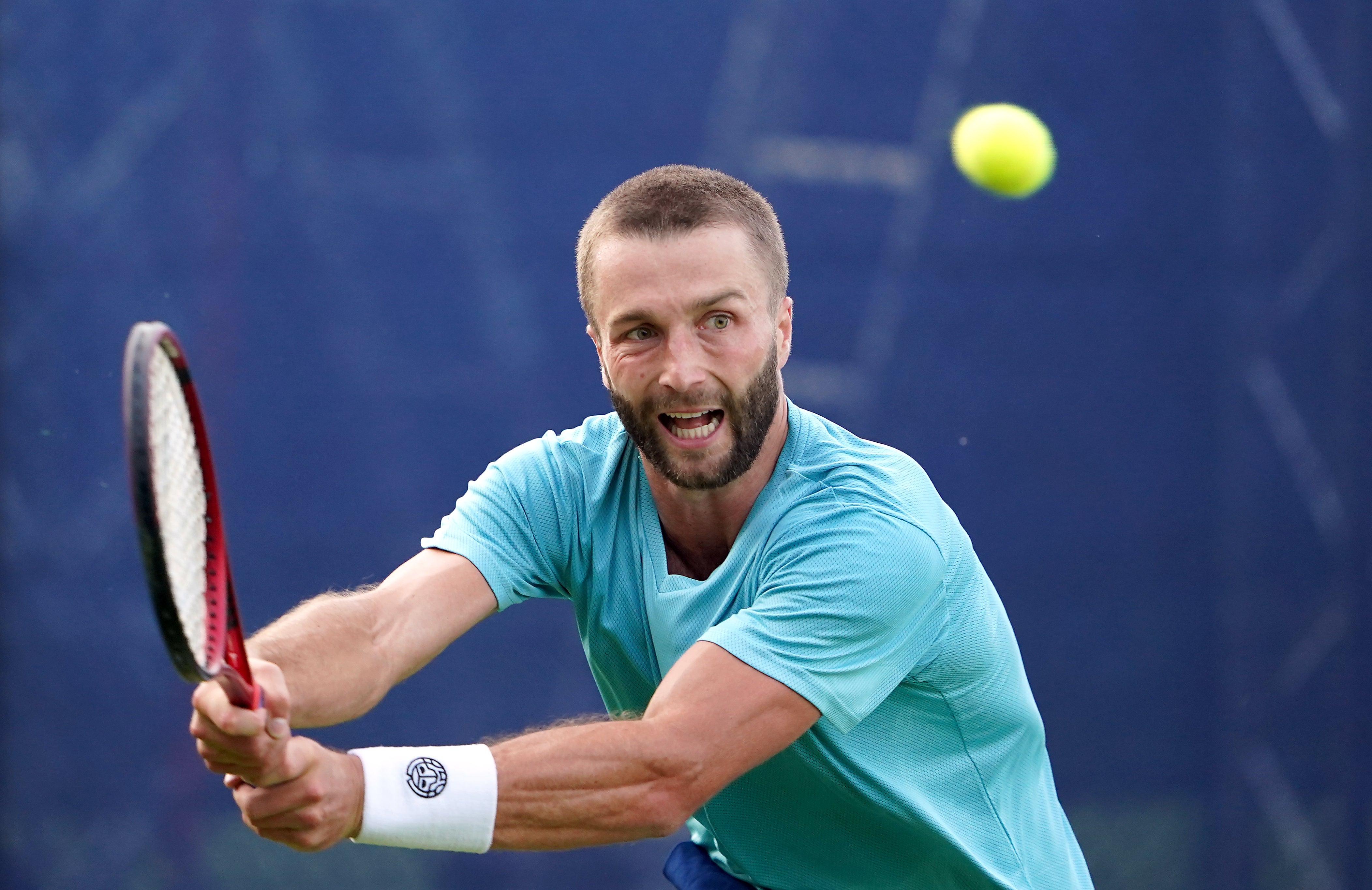Liam Broady puts to bed seven-year heartache with Australian Open qualification
Broady defeated Roman Safiullin to reach the main draw in Melbourne for the first time.

Your support helps us to tell the story
From reproductive rights to climate change to Big Tech, The Independent is on the ground when the story is developing. Whether it's investigating the financials of Elon Musk's pro-Trump PAC or producing our latest documentary, 'The A Word', which shines a light on the American women fighting for reproductive rights, we know how important it is to parse out the facts from the messaging.
At such a critical moment in US history, we need reporters on the ground. Your donation allows us to keep sending journalists to speak to both sides of the story.
The Independent is trusted by Americans across the entire political spectrum. And unlike many other quality news outlets, we choose not to lock Americans out of our reporting and analysis with paywalls. We believe quality journalism should be available to everyone, paid for by those who can afford it.
Your support makes all the difference.Tennis players must learn to move on quickly from defeats but, for Liam Broady qualifying for the Australian Open put right a wrong that has rankled for seven years.
The 28-year-old was clearly emotional after coming from a set and 5-2 down to defeat in-form Russian Roman Safiullin on Friday and reach the main draw in Melbourne for the first time.
Broady lay down on the court soaking it all in, and prominent in his mind was what happened on the same courts in 2015 when his first experience of an overseas grand slam as a senior pro turned sour.
Broady, then 21, reached the final round of qualifying only to lose to American veteran Michael Russell.
“I felt like that was my time to go on and become a top player and I ended up putting in a torrid performance,” he said.
“It kind of threw my career off the rails a little bit. I went home and turned off my phone and disappeared for a week or two getting up to mischief, and I didn’t recover from that for a long time.
“So this was nice in that sense to put that to bed and to finally qualify for the Aussie Open where the heartache of a pro career kind of began. It felt like I was putting things right and that’s been a goal of mine for a while.”
Broady appeared to be heading towards the top 100 at the start of 2015 but by the end of the year he had slipped outside 300 and his ranking fluctuated for five years before he finally achieved a consistently upward path following the Covid-related hiatus in 2020.
In 2019, Broady revealed he had considered quitting the sport because of mental struggles, and it has been a long process for him to learn how best to handle the inevitable ups and downs of his chosen career.
“I kind of felt like I’d been a good junior and that was my coming-of-age moment,” he said of the 2015 loss.
“And then I got kicked in the face by life and sport. That’s what happens in our profession and I kind of got taught a lesson by it. I didn’t respond well to it. I didn’t respond well to losses at the time and that’s been a big process as well is learning how to take losses.
“It makes it a lot easier when you’re a set and 5-2 down when you’re thinking more clearly and not beating yourself up. You can let yourself breathe and think: ‘Ok, let’s hang in there. What can we do to make him question himself here?’ And it worked out.”
Over the last 18 months, Broady has climbed from outside the top 200 to his current position of 127, qualifying for the French Open in 2020 and winning a first title on the second tier Challenger Tour.
Now he can look forward to one of the biggest matches of his career on Tuesday when he takes on Nick Kyrgios, providing the volatile Australian has recovered from Covid-19.
Join our commenting forum
Join thought-provoking conversations, follow other Independent readers and see their replies
Comments